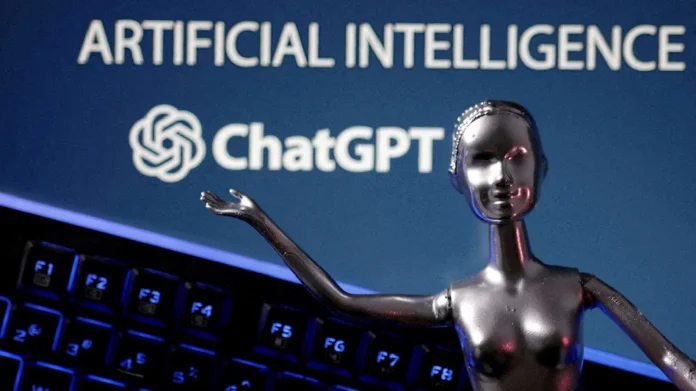ChatGPT expands horizons in legal scholarship, according to Suffolk University Law Dean Andrew Perlman. Perlman, a prominent scholar in the intersection of law and technology, leveraged ChatGPT to craft a groundbreaking scholarly article titled “Generative AI and the Future of Legal Scholarship.” Published on December 26 in the Social Science Research Network, the article explores how generative AI could revolutionize the field of legal academia.
Perlman tasked ChatGPT with developing a novel conception of legal scholarship’s future, specifically focusing on how legal scholars might use AI tools to enhance their work. He concluded that the AI-generated draft showcased “the creativity and linguistic sophistication of a competent legal scholar,” marking a significant milestone in the integration of technology within legal research.
Focus Keyword Subheading: ChatGPT Expands Horizons Of Legal Thought
The article underscores how ChatGPT expands horizons for legal scholars by enabling them to integrate diverse analytical methods, such as empirical legal studies and economic modeling, into their research. Perlman argued that this capability allows for “richer and more holistic” analyses, providing new opportunities to address complex legal issues.
However, he emphasized that generative AI is not a replacement for human expertise. Law professors will remain indispensable for their judgment, ethical oversight, and critical thinking. AI tools, according to Perlman, should act as extensions of human intelligence, enhancing productivity and creativity while maintaining academic rigor.
“The future of legal scholarship lies in reimagining what it can achieve when human wisdom guides artificial intelligence,” Perlman wrote in the article’s epilogue.

Studies Highlight ChatGPT’s Strengths And Weaknesses In Law
Perlman’s work aligns with recent studies that examine the role of generative AI in legal education and practice. A 2023 study revealed that GPT-4, an earlier version of ChatGPT, could pass the bar exam with scores potentially ranking in the 90th percentile in most U.S. states. While this finding demonstrated the potential of AI to understand complex legal concepts, critics questioned the methodology and practical implications of the study.
Another study found mixed results regarding the use of GPT-4 in law school final exams. While the tool improved performance for lower-performing students, it negatively impacted the scores of higher-performing classmates, raising questions about the technology’s equitable application.
A separate analysis showed that generative AI helped law students complete writing tasks more quickly but did not improve the overall quality of their work. These findings suggest that while AI can boost efficiency, it requires thoughtful integration to maximize its benefits without compromising outcomes.
Generative AI’s Role In Legal Research And Writing
Perlman’s article illustrates the transformative potential of generative AI in legal academia. ChatGPT expands horizons by automating time-consuming tasks, such as drafting initial research papers or synthesizing large datasets. This capability allows scholars to focus on refining their arguments, exploring interdisciplinary approaches, and tackling more complex questions.
For instance, AI can bridge gaps between traditional legal methods and innovative approaches like computational modeling, enabling deeper insights into systemic issues. By leveraging such tools, legal scholars can produce more comprehensive and impactful analyses.
Perlman also highlighted the ethical considerations of using AI in legal research. Ensuring transparency, accountability, and bias mitigation are essential for maintaining the credibility of AI-assisted scholarship. Legal educators must adapt their teaching methods to prepare students for a future where AI plays a central role in the profession.

Focus On Innovation, Not Replacement
One of the key takeaways from Perlman’s article is that generative AI should not be seen as a replacement for human expertise. Instead, it should be viewed as a tool that enhances the capabilities of legal scholars. “Generative AI will enable scholars to ask better questions, explore new methodologies, and rethink what is possible in legal academia,” he wrote.
However, Perlman stressed the importance of ethical oversight. The integration of AI in legal scholarship must be guided by human values and wisdom to ensure that the technology is used responsibly and effectively.
Implications For Legal Academia
Perlman’s experiment with ChatGPT reflects a broader shift in how generative AI is being integrated into legal academia. As tools like ChatGPT become more sophisticated, they offer unprecedented opportunities to streamline research, improve collaboration, and expand the scope of legal scholarship.
However, these advancements also raise significant challenges. Scholars must grapple with issues like the reliability of AI-generated content, potential biases in AI models, and the ethical implications of relying on technology for critical decision-making.
Perlman’s vision for the future of legal scholarship is one where AI complements human intelligence, enabling deeper and more meaningful contributions to the field. He envisions tomorrow’s legal thought leaders as those who embrace generative AI while maintaining a steadfast commitment to ethical and intellectual integrity.
As AI continues to evolve, its role in legal academia will undoubtedly grow, offering both opportunities and challenges for scholars, educators, and practitioners alike. By combining human expertise with the capabilities of AI, the legal community can reimagine the possibilities of research, teaching, and practice in the 21st century.

